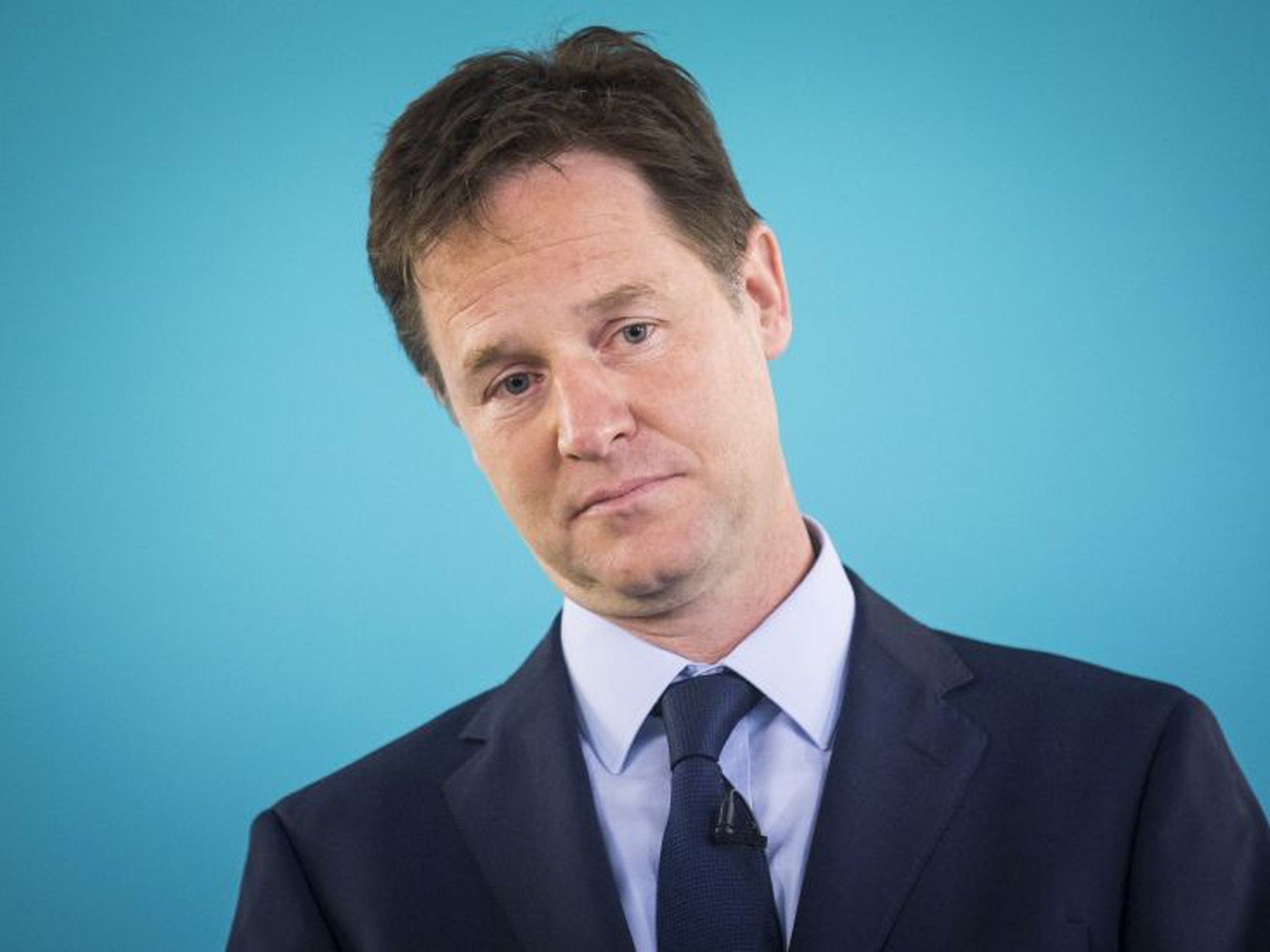Nick Clegg survives a coup but Lib Dem MPs’ fury over poor election results rages on
Deputy Prime Minister will be urged to change party’s strategy as LibDems fear a rout in 2015 vote

Your support helps us to tell the story
From reproductive rights to climate change to Big Tech, The Independent is on the ground when the story is developing. Whether it's investigating the financials of Elon Musk's pro-Trump PAC or producing our latest documentary, 'The A Word', which shines a light on the American women fighting for reproductive rights, we know how important it is to parse out the facts from the messaging.
At such a critical moment in US history, we need reporters on the ground. Your donation allows us to keep sending journalists to speak to both sides of the story.
The Independent is trusted by Americans across the entire political spectrum. And unlike many other quality news outlets, we choose not to lock Americans out of our reporting and analysis with paywalls. We believe quality journalism should be available to everyone, paid for by those who can afford it.
Your support makes all the difference.Liberal Democrat leader Nick Clegg will this week face angry MPs from his party who are demanding an overhaul of its strategy after disastrous local and European election results.
The Parliamentary party will meet after the Queen’s Speech on Wednesday, the first time that the bulk of LibDem MPs have been together since the party lost 11 of its 12 MEPs last weekend. Some MPs had hoped to use this meeting to demand Mr Clegg consider his position, but the Deputy Prime Minister survived a botched coup last week that has eased the pressure on him.
Instead, it is thought that more than 10 MPs – about a fifth of the LibDems’ Parliamentary caucus – will demand that the party abandon its “stronghold strategy”.
This plan was supposed to play to the LibDems’ famed strength for holding constituencies once they have won them, as the increasingly unpopular party has struggled to pick up new supporters since entering coalition. But this strategy backfired last month when for every four local seats they won again, three were lost. This weekend, politicalbetting.com showed that if this trend were repeated in the general election the LibDems would lose 24 of their 57 MPs.
One rebel MP said that the findings “blow a hole” in the LibDems’ current electoral plans. “If the strategy is working I wouldn’t like to see it when it is not working,” added the MP, who is one of those who want a more positive approach of focusing on potential electoral gains next year.
John Pugh, the Southport MP who publicly questioned Mr Clegg’s leadership last weekend, told The Independent on Sunday: “I think the party now needs to address the twin evils of growing inequality and the growing lack of social cohesion. I don’t think the current party strategy spells that out.”
Last week, research commissioned by Lord Oakeshott showed that Mr Clegg could even lose his Sheffield Hallam seat next year. The LibDem peer was manoeuvring to get his friend Vince Cable to succeed Mr Clegg, as polls showed approval for the Business Secretary as leader. Mr Cable denounced the polling as “inexcusable” and Lord Oakeshott quit the party, warning that Mr Clegg was leading the LibDems to “disaster”.
Mr Clegg could face a leadership contest if 75 local parties demand a ballot. One of Mr Clegg’s most prominent critics, Birmingham Yardley MP John Hemming, said last night takes the party into “uncharted territory”. Senior party sources believe Mr Clegg will survive this crisis too.
Adding to the sense of doom in the party was the re-emergence of the LibDems’ biggest scandal, accusations of sexual impropriety against one-time party master-strategist Lord Rennard. In January, an inquiry led by Alistair Webster QC, found there was less than a 50 per cent chance of the allegations being proven, though the report has not been made public.
However, the inquiry did suggest the peer apologise. For months Lord Rennard refused to do so and subsequent attempts at mediation between Lord Rennard and four female complainants collapsed. Lord Rennard offered a qualified apology in a letter published last week, which many LibDems hoped would draw a line under the scandal.
However, both Lord Rennard and the complainants are running separate appeals about the process and the peer wants the inquiry report published as he believes it at least partly exonerates him.
Join our commenting forum
Join thought-provoking conversations, follow other Independent readers and see their replies
Comments